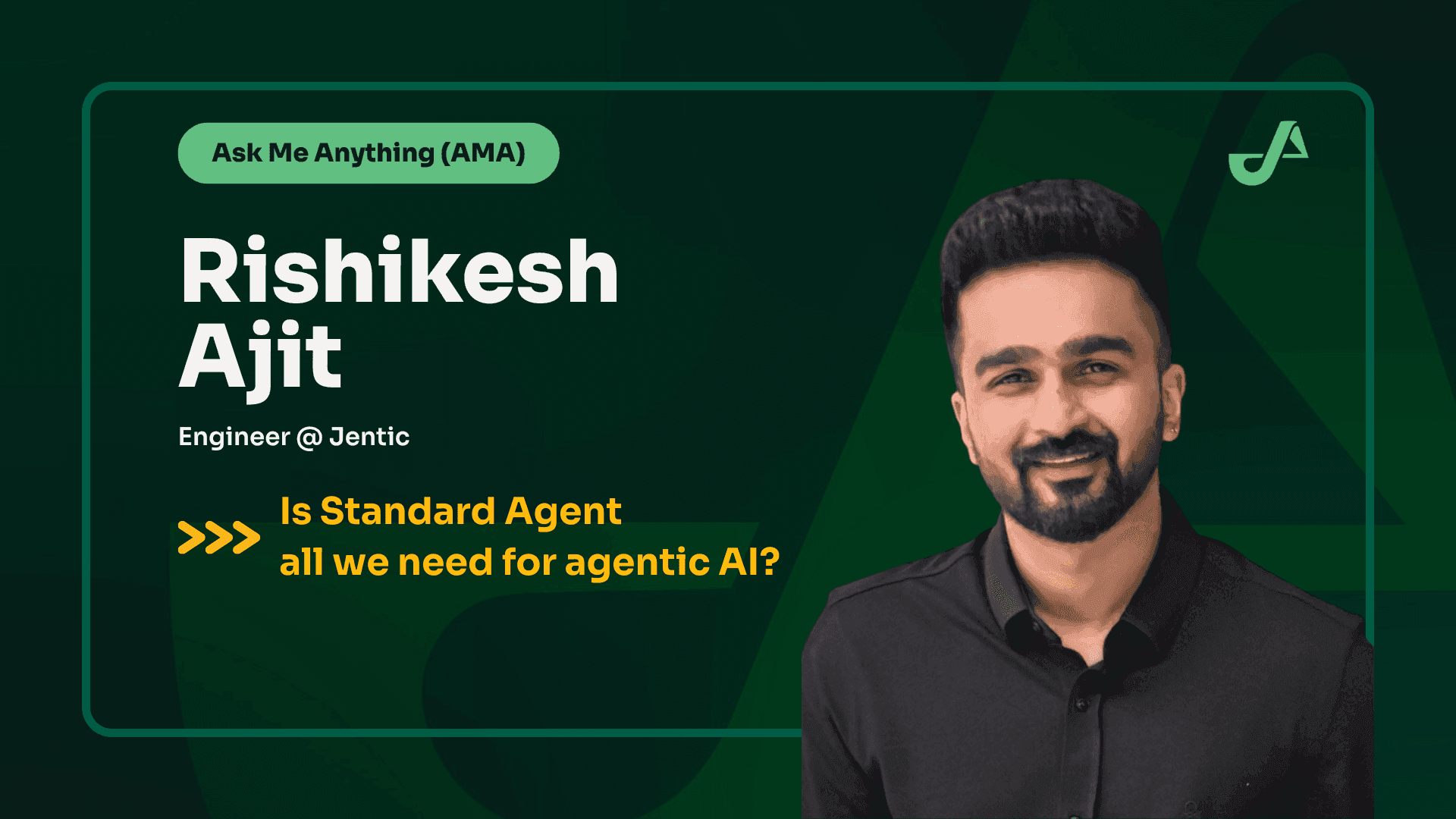
Why We Built Standard Agent (And Why It Matters)
Rod Rivera
Estimated read time: 4 min
Last updated: October 13, 2025
Rishi and I sat down for a live session on Standard Agent last Thursday. The chat exploded. Questions kept coming: why another agent framework? How many LLM calls does ReWOO make? Can I use this for trading algorithms? What about localStorage in artifacts?
Fair question on the first one. The space is crowded. LangGraph, CrewAI, Autogen. All powerful. All widely used.
Here is why we built Standard Agent anyway.
The Mechanical Radio Problem
Rishi made a point I keep thinking about. When we were kids, you could take apart a mechanical radio or clock. You would see gears, springs, levers. Cause and effect were visible. It sparked curiosity.
Most agent frameworks today do not work like that. You peek inside and see layers of abstraction. Hidden failure modes. Concepts you need to learn before you can debug anything.
Standard Agent sits somewhere between "build it yourself" and "use the big framework." It's simple enough to read in an evening. Under 1,000 lines of Python. If something breaks, you can see why.
What Standard Agent Actually Is
Four components:
- LLM: The brain
- Reasoning strategy: How it thinks (ReWOO or ReAct out of the box)
- Memory: Where it takes notes
- Tools: How it interacts with the world
You can swap any of these. Bring your own reasoner. Plug in different tools. Use Jentic for 1,500+ APIs, or implement your own base class for file systems, MCP, custom endpoints.
The code is readable. The logic is visible. You control what happens.
When to Use Standard Agent (And When Not To)
Use Standard Agent if:
- You want full control and transparency
- You are experimenting with reasoning strategies
- You need to understand how agents work, not just use them
Do not use it if:
- You need a turnkey solution with a dashboard
- You want production-ready orchestration out of the box
- You need features Standard Agent does not cover yet
LangGraph is powerful. For some problems, it is the right tool. Standard Agent is not trying to replace it. It is showing that for many use cases, you might not need all that complexity.
Getting Started Takes Minutes
Clone the repo. Add your API keys to .env. Run make install.
BASHpython examples/tree_api_agent.py
You will see a ReWOO agent plan its steps, classify them (reasoning vs tool use), execute, and return results. The entire execution trace is visible.
For Slack integration, follow the README in examples/slack. You can deploy an agent that checks your Gmail, searches the web, or interacts with any API you have connected through Jentic.
Observability is built in. We use OpenTelemetry with LangFuse (free tier works fine). You see token counts, latency, errors, reasoning steps. No guessing.
Questions from the Community
The engagement during the session was intense. People wanted specifics.
Someone asked about LLM call counts. With ReWOO: one call to plan, then one or two per step depending on whether it is reasoning or tool use. If a step fails, it tries to recover (default: twice). You have an upper bound. No runaway costs.
Another person asked if Standard Agent works without Jentic. Jentic ships out of the box because it gives you 1,500+ APIs instantly. But the architecture is separate. Implement the base class. Use your own tools. MCP, file systems, whatever you need.
Can you build trading agents? Yes. Someone did during our internal hackathon. Standard Agent gave them the reasoning loop. They layered safety checks (price floors, execution caps) on top. Full control.
The questions kept coming. We ran out of time. It sounds like we need a follow-up session.
What People Are Building
During our internal hackathon, someone built a trading agent. Standard Agent gave them the reasoning loop. They layered their own safety checks on top. Full control.
Others are exploring:
- Research assistants that fetch and synthesize articles
- Workflow automation across Gmail, Calendar, Slack
- Custom reasoning strategies (Tree of Thought, LATS)
The code is open. Hack it. Fork it. Replace pieces. That is the point.
Contributing
We are in Hacktoberfest. Issues tagged "good first issue" are ready. We need:
- New reasoning strategy implementations
- Persistent memory (Redis, vector stores)
- More tool examples (file systems, web, shell)
- Better docs and examples
Small contributions matter. Join us on Discord. Open an issue. Send a PR.
The goal is not to build the biggest framework. It is to keep agent development transparent, hackable, and grounded in code you can actually read.
Join Us Next Thursday
We run these live sessions every Thursday at 4pm Irish Time. We bring in people building interesting things in the AI agent space. Real code. Real questions. No slides.
You can find Standard Agent at github.com/Jentic/standard-agent.
If you want agents you can understand: start here.
